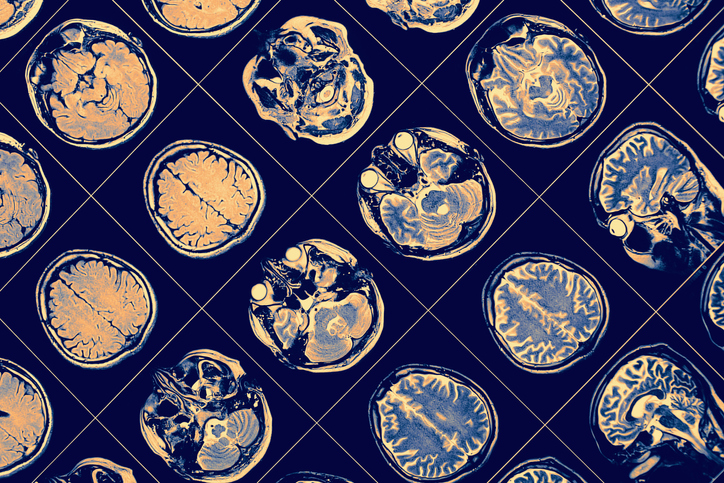Tag: Psychiatry
-

Subgroups of Interneurons Regulate Learning and Fear Responses
Northwestern Medicine investigators have uncovered new insights into the synaptic connections of subgroups of interneurons, findings that may improve the understanding of fear responses and could inform new targeted therapies for post-traumatic stress disorder (PTSD), according to a recent study.
-

Body’s Own Cannabinoids May Be Key to Reducing Excessive Fear Responses
Specific cannabinoids produced by the human body may help to quell excessive fear responses in people with post-traumatic stress disorder and anxiety, according to a Northwestern Medicine-led study published in the Journal of Clinical Investigation.
-

Study Identifies Potential Therapeutic Target for PTSD
Targeting a specific neural circuit through noninvasive neuromodulation may reduce symptoms in patients with posttraumatic stress disorder (PTSD), according to a recent study published in Nature Neuroscience.
-

Novel Pathway Explains the Escalation of Fear Responses
Scientists have discovered a neuronal pathway involved in how the brain encodes the transition to high-intensity fear response behaviors required for survival, according to a study published in Nature.
-

Neural Mechanisms May Serve as Therapeutic Target for Depression
A recent study published in Molecular Psychiatry has identified previously unknown alterations in neural connectivity that promote psychomotor disturbance — a slowing or reduction in movement — in individuals with major depressive disorder.
-

Study Explores How Endocannabinoids Regulate Brain’s Response to Stress
Investigators have identified new signaling mechanisms utilized by endocannabinoids to regulate a subset of neurons in response to stress, according to recent findings published in the Proceedings of the National Academy of Sciences.
-

Your Body’s Own Cannabinoid Molecules Calm You During Stress
A new Northwestern Medicine study has discovered that a key emotional brain center, the amygdala, releases endogenous cannabinoid molecules under stress, and these molecules dampen the incoming stress alarm from the hippocampus, a memory and emotion center in the brain.
-

Sexual Minority Women Less Likely to Have Sexual Identity Documented in Medical Records
Sexual minority women have a higher risk of postpartum depression but are less likely to have their sexual identities documented in electronic medical records, according to a Northwestern Medicine study published in JAMA Psychiatry.
-

Location of Brain Lesions May Predict Seizures
The location of a brain lesion could give clues as to whether or not it will cause seizures later on in life, according to the findings of a new multicenter study published in JAMA Neurology.
-

Weintraub Appointed to Illinois Supreme Court Commission on Elder Law
Sandra Weintraub, PhD, professor of Psychiatry and Behavioral Sciences in the Division of Psychology and associate director of the Northwestern Alzheimer’s Disease Research Center in the Mesulam Center for Cognitive Neurology and Alzheimer’s Disease, was recently appointed to the Illinois Supreme Court Commission on Elder Law.






